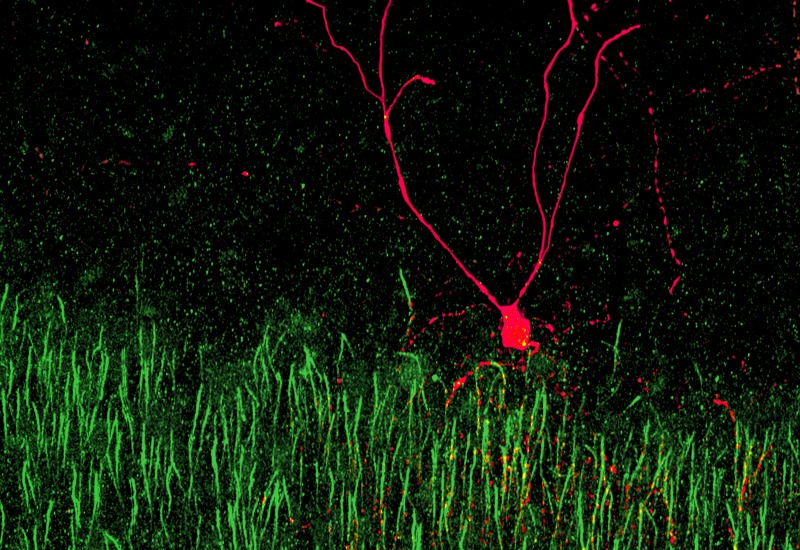With new book, LSI professor wants to help researchers navigate genetic models for studying Down syndrome
Bing Ye has edited and co-authored a new book that he hopes will help current researchers and newcomers to the field capitalize on the variety of tools and systems available for studying Down syndrome.
A gene involved in Down syndrome puts the brakes on neurons’ activity in mice, new study shows
LSI researchers have demonstrated how an extra copy of a gene that is triplicated in human Down syndrome patients contributes to neuronal dysfunction in mice.
Using the power of artificial intelligence, new open-source tool simplifies animal behavior analysis
A team from the LSI has developed a new software tool to help researchers across the life sciences more efficiently analyze animal behaviors. The open-source software capitalizes on artificial intelligence to identify, categorize and count defined behaviors across various animal model systems.
Bing Ye discusses the impact of a full year of reduced research efforts at the LSI (and it might not be all bad)
As we marked our first “Panniversary,” LSI professor and research associate dean Bing Ye reflected on how the institute has navigated a year of reduced research efforts, and the potential long-term impacts — both good and bad — on the scientific enterprise.
New study reveals how the nervous system mutes or boosts sensory information to make behavioral decisions
Researchers have uncovered a neural network that enables Drosophila melanogaster to convert external stimuli of varying intensities into a “yes or no” decision about when to act.
A ‘timeless’ tradition: How fly genes get their names
When scientists discover a new phenomenon, they often get to name it. For researchers who study the model system Drosophila melanogaster, or fruit flies, that means participating in a long tradition that is a hallmark of the field’s culture.
LSI faculty member Bing Ye receives Klatskin-Sutker Discovery Fund award to study Down syndrome
Researchers at the LSI are creating a legion of fruit flies to advance our understanding of Down syndrome, thanks to funding from the Klatskin-Sutker Discovery Fund.
No pain, no gain: investigating how painful experiences change neural circuits and behavior
Research sheds new light on long-lasting changes that painful stimuli can exert at the level of a neural circuit — changes that can have a powerful impact on behavior.
Cancer drugs may hold key to treating Down syndrome and other brain disorders
A class of FDA-approved cancer drugs may be able to prevent problems with brain cell development associated with disorders including Down syndrome and Fragile X syndrome.
Determining neural specificity
Researchers at U-M have shown that the specific connection of sensory neurons to the correct targets in the central nervous system in fruit flies is dependent on how active the neurons are.
Targeting an aspect of Down syndrome
U-M researchers have determined how a gene that is known to be defective in Down syndrome is regulated and how its dysregulation may lead to neurological defects, providing insights into potential therapeutic approaches to an aspect of the syndrome.
Neuronal regeneration and the two-part design of nerve cells
LSI reseachers have evidence that a single gene controls both halves of nerve cells, and their research demonstrates the need to consider that design in the development of new treatments for regeneration of nerve cells.














